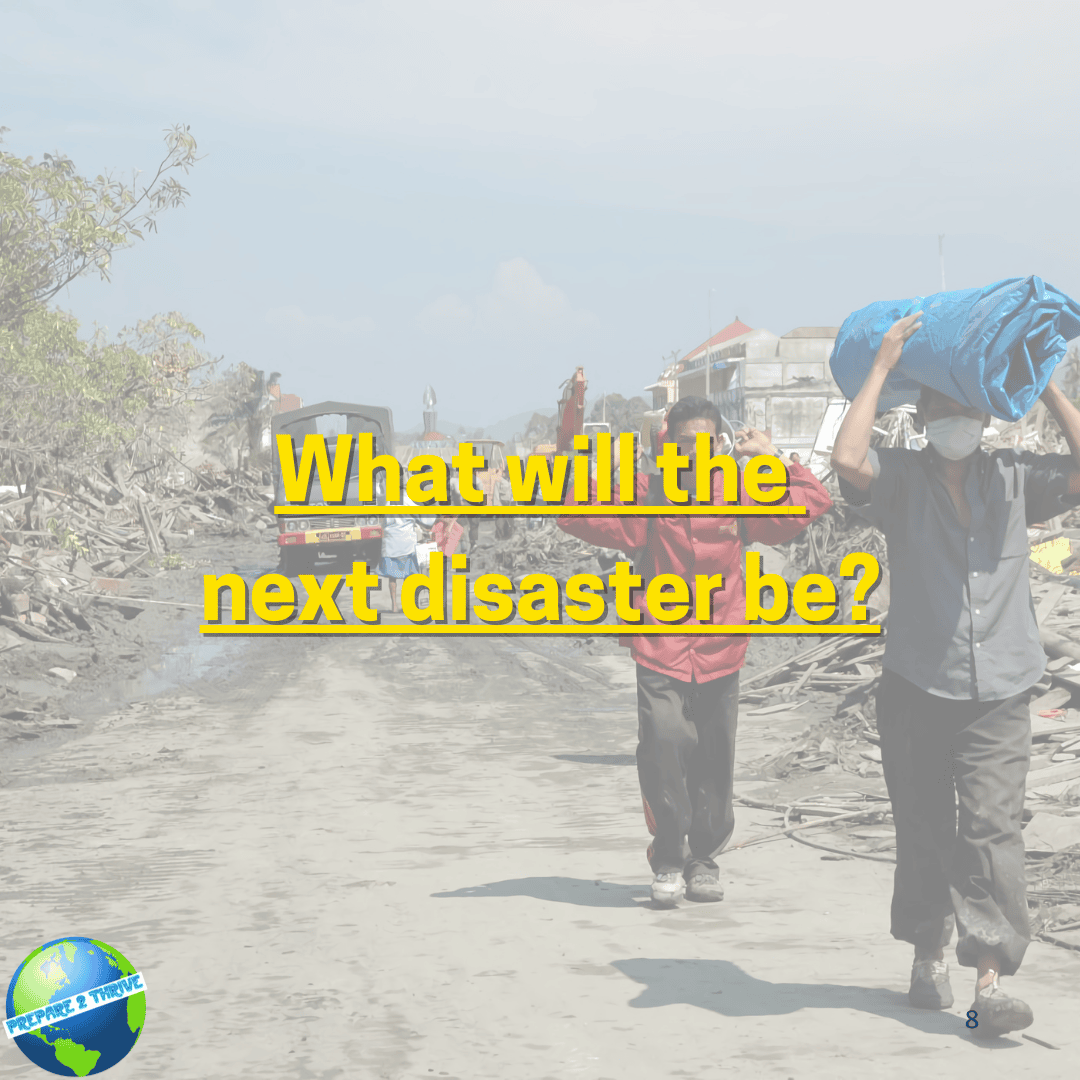Are most people preparing for a total end-of-the-world event where there is global anarchy?
Or are most people preparing for local disaster/emergency, their home country failing, et cetera.
My View
The last global event happened in what is now Mexico, and was 66 million years ago. While the last major local event started in February when Russia invaded Ukraine. And there are going to be minor local events around the globe every week.
So while it would be nice to be prepared to survive another asteroid impact, or a global nuclear war, or similar, the chances you will need that are minimal.
Situations
I try and classify situations as how likely they are to occur.
WILL HAPPEN
There are events that are going to happen, near you, this year. They may not affect you, but they will happen in your region. Not maybe, not possible, they will happen. Depending upon where you live that could be forest fires, blizzards, hurricanes/cyclones, tornadoes, droughts, or floods.
POSSIBLY HAPPEN
Then there are the possible happens. This covers things like civil unrest, government collapses, invasion or coup, recession,
UNLIKELY TO HAPPEN
Lastly there are the unlikely events. These would be more global in nature, and would affect most areas of the planet. In addition to the mentioned asteroids and nuclear war, these could include super-volcano eruptions, global pandemic (which goes to show that unlikely does not mean never), global recession.
Responses
Then we can look at responses needed for each.
WILL HAPPEN
These are the events were you need to be self-sufficient for a few weeks at most. Help will arrive shortly, you just need to hang on until it does. Have a week or two's supply of food and water, emergency first aid, heat & fuel.
In some cases you may need to leave your home (a forest fire or flood for example). So have emergency supplies ready to go (including identity documents).
POSSIBLY HAPPEN
For these events, the best course of action is to leave the region/country. Using Ukraine as the example, millions of people have fled the country.
While it is possible to "head to the hills", you are still in the danger area. Your chances of survival are based upon the hope that danger doesn't find you.
If you flee the region/country, where can you go, and how do you get there?
You will need your identity documents and the food, water and first aid from the above scenario.
UNLIKELY TO HAPPEN
Lastly there are the unlikely events. These would be more global in nature, and would affect most areas of the planet. In addition to the mentioned asteroids and nuclear war, these could include super-volcano eruptions, global pandemic (and COVID goes to show that unlikely does not mean won't happen), and global recession.
If this happens, you will need to travel. There will still be some regions that are less influenced than others, and your long-term survival depends upon you reaching those places.








